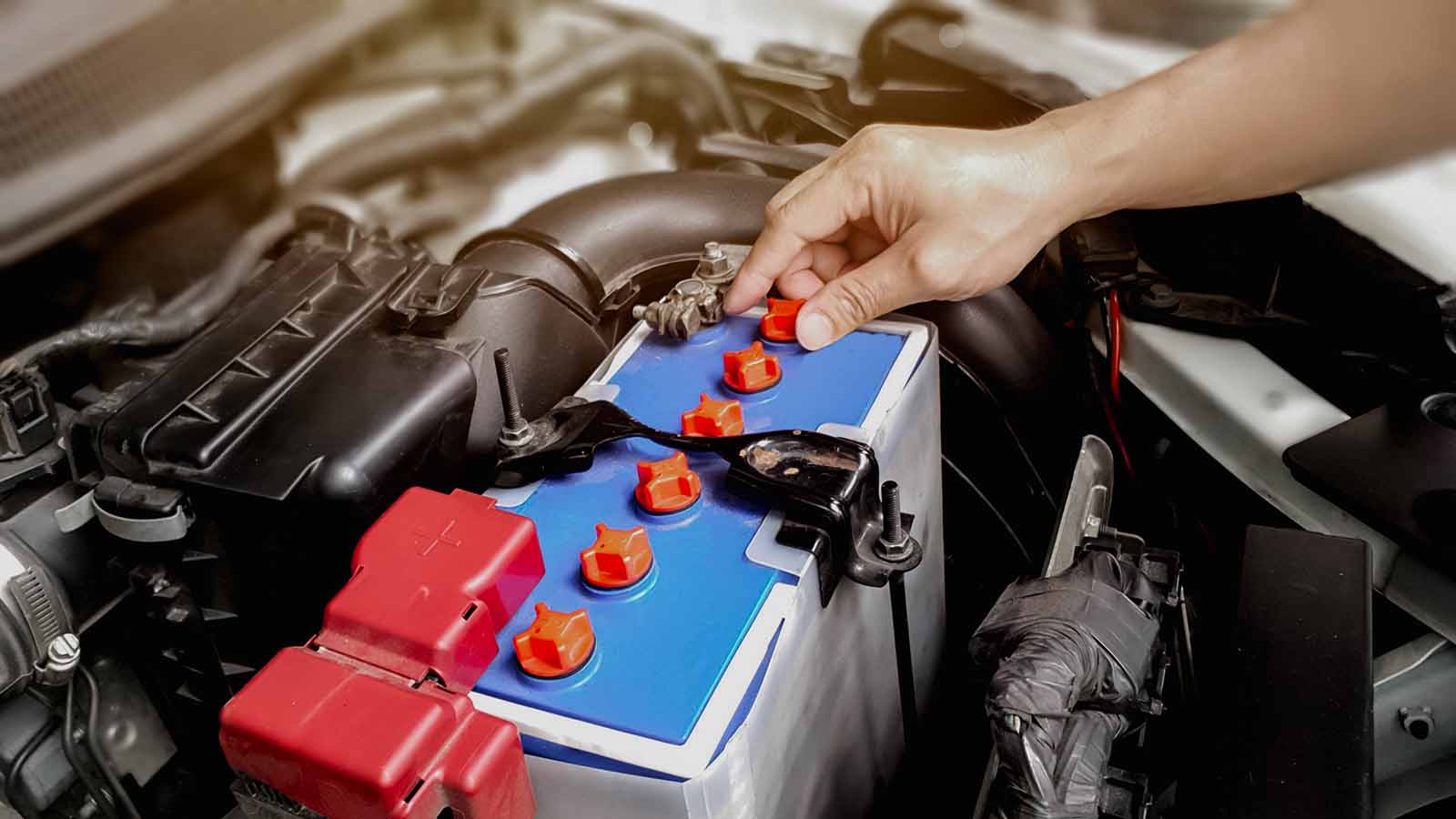You just replaced your car battery, thinking your car would run smoothly after the replacement. Yet, here you are, stranded again, with a dead battery. Frustrating, right? It seems unthinkable: how could a brand-new battery fail to hold a charge? You’re not alone in wondering what might be going wrong.
In this article, we’ll dive deep into the various reasons why a new battery might refuse to hold a charge, breaking down everything from installation mishaps to hidden electrical problems.
This guide will not only provide solutions but also give you a better understanding of how your car’s electrical system works and how to maintain it effectively.
What Benefits does Battery plays in Your Vehicle?
A car battery is the heart of your vehicle’s electrical system. It provides the initial jolt of power necessary to start the engine and supplies energy to accessories like headlights, radios, and air conditioning when the engine is off. Once your vehicle starts, the alternator takes over, recharging the battery and powering the electrical components.
When the battery fails to hold a charge, it’s often a symptom of a bigger issue within the system. Batteries are meant to last several years, and when a new one struggles to keep a charge, it’s usually an indicator that something beyond the battery itself is causing the issue.
Common Reasons Your New Battery Won’t Hold a Charge
There are multiple reasons your new battery may be failing to charge. These reasons range from straightforward to more complicated mechanical issues, so let’s explore them one by one.
1. Faulty Installation or Loose Connections
One of the first things to check is whether the battery was installed correctly. A loose or poorly connected battery cable can prevent the battery from charging. If the terminals aren’t securely fastened or if the connection points are corroded, it won’t make good contact with the vehicle’s electrical system, leading to charging issues.
Sometimes, during installation, the battery might not be seated properly in its tray, causing it to jostle around. This constant movement could loosen the connections over time, leading to intermittent charging problems. Always ensure that the battery is securely fitted and that all connections are tight and clean.
2. A Defective Alternator
A faulty alternator is one of the most common culprits when a battery won’t hold a charge. The alternator’s primary role is to recharge the battery while the engine is running. If the alternator is malfunctioning, it won’t generate enough power to recharge the battery, which will eventually run out of juice.
Some signs of a failing alternator include dimming headlights, unusual sounds, or electrical malfunctions. If you suspect your alternator, a mechanic can test its output to confirm if it’s the cause of your battery problem.
3. Frequent Drain from Electrical Components
Parasitic drain occurs when electrical components continue to draw power from the battery even when the vehicle is turned off. Things like interior lights, aftermarket accessories, or faulty electronics can slowly drain the battery overnight or while the car sits idle for long periods.
You might not even notice it at first because parasitic drain is often slow and subtle. However, if left unchecked, it can completely drain your battery over time. It’s worth checking for any lights that remain on after shutting off the car or inspecting any recent installations for potential faults.
4. Short Trips and Lack of Use
Did you know that taking frequent short trips could prevent your battery from fully recharging? Every time you start your vehicle, a considerable amount of energy is pulled from the battery. On short trips, the alternator doesn’t have enough time to recharge the battery properly. If your car usage consists mostly of short commutes, you may find that the battery struggles to keep a charge.
Similarly, if the vehicle sits idle for extended periods, the battery can lose its charge. Batteries naturally discharge over time, and if the car isn’t driven regularly, the alternator doesn’t get the chance to recharge it.
5. Extreme Temperatures
Extreme weather can affect the performance of your car battery, even if it’s brand new. In cold temperatures, the chemical reactions inside the battery slow down, reducing its ability to hold a charge. Conversely, extreme heat can cause the battery fluid to evaporate, damaging internal components and reducing the battery’s efficiency.
This is why you might notice more battery problems in the winter or summer months. In either case, temperature fluctuations can be hard on your vehicle’s electrical system, especially if you live in areas with harsh weather.
6. Battery Not Fully Charged Initially
Sometimes, when you purchase a new battery, it might not be fully charged out of the box. Although it’s rare, it’s worth checking whether your battery was charged to capacity before it was installed. Many new batteries come with a partial charge, but they need a full cycle of charging once installed in the vehicle.
If the battery was undercharged from the start, the alternator might struggle to bring it up to full charge, especially if there are other factors at play like short trips or parasitic drains.
7. Faulty Charging System
Your car’s charging system, which includes the alternator, voltage regulator, and wiring, plays a crucial role in maintaining the battery’s charge. If any part of this system is defective, it could lead to charging problems. For instance, a malfunctioning voltage regulator might allow too much or too little power to flow into the battery, causing it to overcharge or undercharge.
If you’ve already ruled out the alternator, it’s worth getting the entire charging system inspected by a professional.
8. A Bad Ground Connection
A bad ground connection can create electrical issues that prevent the battery from charging properly. The ground wire is essential for completing the electrical circuit in your vehicle, and if it’s corroded, damaged, or poorly connected, the battery will struggle to hold a charge.
A mechanic can test the ground wire and ensure that it’s providing the correct amount of voltage for proper battery charging.
9. Defective New Battery
While it’s uncommon, it’s not impossible for a new battery to be defective. Batteries go through a manufacturing process, and occasionally, a batch can have internal defects. If you’ve ruled out all other potential causes and the battery still won’t hold a charge, it could be due to a factory defect.
If this happens, you should be able to return the battery under warranty for a replacement. Before doing so, make sure to test the battery with a professional to confirm the defect.
How to Diagnose and Fix the Issue
Diagnosing a battery that won’t hold a charge can be tricky, but it’s important to approach it systematically. Here are a few steps you can take:
1. Inspect the Battery and Connections
Start by checking the battery’s connections. Are they clean and secure? Look for any signs of corrosion, and clean the terminals with a wire brush if necessary. Make sure the battery is tightly fastened in place to prevent it from shifting while driving.
2. Test the Alternator and Charging System
If the connections look good, it’s time to test the alternator and the rest of the charging system. You can do this with a multimeter or by visiting a mechanic who can run a more comprehensive diagnostic test. This will help you determine whether the alternator is the issue or if there’s a deeper problem in the charging system.
3. Check for Parasitic Drain
To check for parasitic drain, you’ll need a multimeter. Start by disconnecting the negative battery terminal and placing the multimeter in series with the battery and the terminal. This will allow you to measure how much power is being drawn when the vehicle is off. If the reading is higher than expected, you may have a parasitic drain issue that needs further investigation.
4. Consider the Vehicle’s Usage Patterns
If you primarily use your vehicle for short trips or leave it parked for extended periods, consider driving longer distances occasionally to give the alternator more time to recharge the battery. In some cases, investing in a trickle charger or battery maintainer might be necessary if your driving habits prevent the battery from charging fully.
Tips for Preventing Future Battery Issues
Preventing future battery problems comes down to proper maintenance and understanding how your vehicle’s electrical system works. Here are a few tips to help:
1. Keep the Terminals Clean
Regularly check your battery terminals for signs of corrosion, dirt, or loose connections. A clean connection ensures efficient power flow and prevents charging issues.
2. Drive Regularly
Even if you’re not using your car frequently, try to take it for longer drives occasionally. This gives the alternator time to recharge the battery fully.
3. Avoid Short Trips
Try to minimize short trips, especially if you know your battery is struggling to hold a charge. When possible, combine errands into one longer trip.
4. Monitor Electrical Accessories
If you’ve recently installed any aftermarket electronics, make sure they’re not draining your battery when the car is off. Disconnect any unnecessary devices if the vehicle will sit unused for a long time.
Conclusion
A new battery that won’t hold a charge can be a perplexing and frustrating experience, but by methodically diagnosing the issue, you can often point out the cause. Whether it’s a faulty alternator, parasitic drain, or simply an installation issue, addressing the root problem will not only extend the life of your battery but also improve your vehicle’s overall performance.
By following the tips outlined in this article, you can prevent future battery problems and ensure your car stays on the road, fully charged and ready to go. Keep a regular maintenance schedule, and pay attention to your vehicle’s usage patterns, and you’ll be well on your way to avoiding dead battery headaches.

